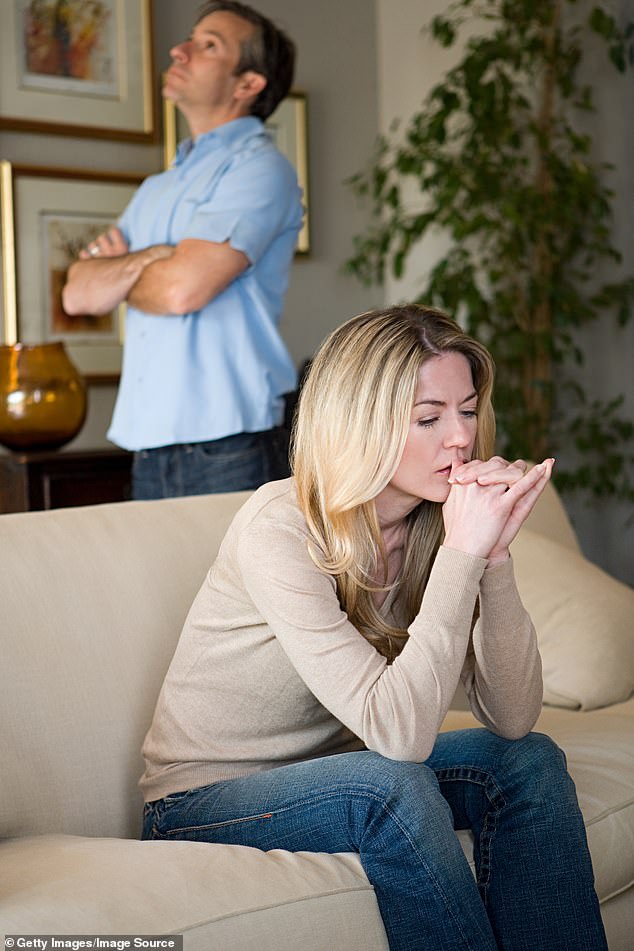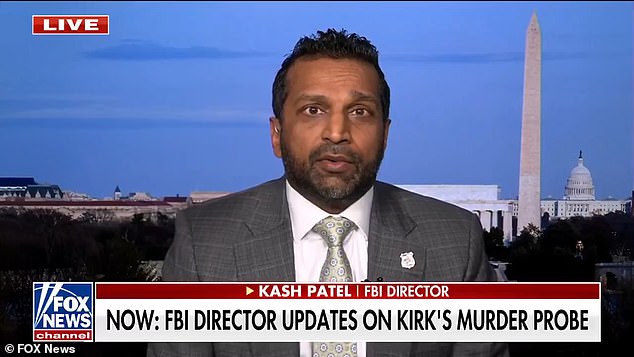The much talked about new movie, The Roses, opens with the warring couple, brilliantly played by Benedict Cumberbatch and Olivia Colman, in a toe-curlingly awkward marriage guidance session.
In response to the therapist’s prompt for each of them to reveal something they like about their partner, the pair rattle off a twisted list of veiled insults and blatant criticisms.
The therapist is horrified – and so she should be. Calling time on the session, she ushers the couple out of the door, declaring: ‘I just can’t see a future for you at all’ and ‘I don’t think you have the capacity to fix your problems.’
This might seem a highly negative and even unprofessional stance to take, but I think she’s right. As a divorce lawyer and relationship coach, I spotted a whole succession of ‘red flag’ indicators in that scene to make me believe the Rose marriage had sailed past the point of no return.
Unfortunately, I’ve sat in a room with plenty of antagonistic couples like this. After 30 years in the business, I know although I’ll always do my best to help, there are certain signs of a line crossed.
I can always spot – within a few minutes – which marriage can be saved and which is heading towards divorce.
These are not one-off ‘oops’ moments, they’re patterns. Be warned. If two or three are showing up on repeat in your relationship, you are not going through a tricky patch – you’re on the slide.

Divorce lawyer and relationship coach Sheela Mackintosh-Stewart can always spot – within a few minutes – which marriage can be saved and which is heading towards divorce
SUFFERING FROM COMPLIMENT PARALYSIS
In the movie, the couple, Theo and Ivy, clearly struggle to find anything pleasant to say about one another. I see this all the time. Familiarity can breed contempt. The tiny slights can stack up and admiration fades. Left unchecked, contempt can harden into indifference, then disconnection.
The tell-tale sign for me is the way clients stall when I ask them to name one current thing they admire about their partner. Toxic couples will pause, squirm and often offer paltry praise in the past tense (‘they used to bring me flowers’ or ‘they used to be so thoughtful’). That’s exactly what Cumberbatch’s character Theo does when he offers: ‘I have memories of her being witty’ and ‘She smells pleasant on occasion.’
Why it’s fatal: When kindness and gentleness stop, there will be a strong urge for one or both of you to want to punish the other for the hurt, pain and unreturned love – and when you reach that point, repairs simply won’t stick.
‘I DON’T LIKE YOU’ENERGY
One of the most shocking revelations in any coaching session is couples who genuinely don’t seem to like each other. You can tell immediately if you are in the presence of people who don’t feel good or happy in each other’s company – it shows in tone, eye contact and body language.
In one scene in The Roses, Theo admits to Ivy he sometimes feels ‘sporadic, dizzying hatred’ for her. She looks shocked – but then admits she feels the same way.
Why it’s fatal: Hating in the moment is human. But consistent, relentless, inescapable dislike for your partner cannot be fixed.
PUBLIC CONTEMPT FOR PARTNER
My divorce antenna is tuned in to even the slightest hint of an eye roll or flashes of sarcasm in those I coach.
Any sign of contempt that can be witnessed by others is widely acknowledged as the single most consistent predictor of divorce.
The reason contempt is so toxic is because any form of name calling or character assassination – even if it is followed by a claim of ‘only joking!’ – signifies a complete lack of respect.

You can tell immediately if you are in the presence of people who don’t feel good or happy in each other’s company – it shows in tone, eye contact and body language
In the mind of the partner being cruel, this means the frame has shifted from ‘we have a problem’ to ‘you are the problem’. From here, toxic resentment can only start to pile up.
Why it’s fatal: Mutual respect is essential because it protects the ‘we’ and signals you are equals on the same team, each with a voice. Once respect goes, the divorce courts get busy.
ALL CONFLICT, NO REPAIR
You might enjoy a banter-heavy relationship like the Roses, but endless bickering, even if it seems light-hearted, becomes totally toxic if these spiky moments are not matched by some element of resolution or repair.
Fights are not the problem; consistently failed repairs wreak relationships. If there’s no apology, clarification or effort to soothe, each argument just adds another brick to the wall between you. Tension can build because most fights are grief in disguise.
Anger (about something seemingly trivial such as leaving towels on the bathroom floor) often stems from something deeper, for example underlying unmet needs (the assumption one person need not bother putting the towel on a rail because you, the dogsbody, will automatically pick it up).
Why it’s fatal: Relentless negativity can spiral into a destructive blame game of ‘you always’ and ‘you never’, from which there is no return.
POWER IMBALANCE
When I first see a couple for coaching, I look for any sign of power imbalance. Is one partner dominating, seeking my attention, talking over the other? Does the other look vulnerable, quiet, cowering even?
On the therapist’s couch, The Roses look fairly evenly matched, but there is clear tension between them that stems from how their roles had been reversed, with Ivy taking the high-profile, lucrative job status Theo once enjoyed.
Very often, power imbalance can be exacerbated by narcissistic traits in one partner, so I’m always alert for signs of high self-focus, low empathy under stress, fragile ego and a strong need to be right or admired. Unchecked, these traits can create a very unhealthy dynamic that usually ends in divorce when the less-confident partner reaches an ‘I can’t do this anymore’ breaking point.
Why it’s fatal: When one person totally dominates, that’s not a partnership, it’s a toxic hierarchy.
KEEPING SCORE OF TINY ISSUES
In a coaching session I’ll always look out for any signs of score keeping – if one interrupts to correct the other on a point or lets slip they’ve kept a tally of how many times they’ve taken the bins out over X years of the marriage.
In any relationship it is so easy for tiny issues to turn into turf wars, and many couples get trapped in a power struggle stage where one-upmanship replaces teamwork. Score keeping is often about controlling anxiety, bruised egos and showing who’s boss. If you don’t have the skills to shift this mindset, it never ends well.
Why it’s fatal: When you keep score, you’re not cheer-leading or team-working. That makes it difficult for a relationship to survive.
MIND THE CHAIR GAP

A sure-fire sign of an end-of-their-tether couple beyond my help is lack of eye contact between them and one might sit with arms defensively folded
When I invite couples in for coaching, I usually position two chairs close together and watch. If one or both look uncomfortable or subconsciously find themselves trying to nudge the chairs apart – even by a few inches – I know.
Another sure-fire sign of an end-of-their-tether couple beyond my help is lack of eye contact between them. One might sit with arms defensively folded, and if I watch really closely I can sometimes spot ‘micro-winces’ or minuscule head shakes in response to whatever their partner has to say.
Why it’s fatal: This quest for distance – even at a microscopic level – often ends up mapping the trajectory of their relationship.
LOST HOPE IN RELATIONSHIP
I often start my session with a question such as: ‘Before we begin, tell me what you want at the end of today?’ If the response from one partner is: ‘I can’t see a future’ or ‘I want to leave with a timeline of moving out’ then, no matter how much the other person wants to save it, the relationship is over.
A more positive answer that will give me hope is: ‘I need to understand where we are’ or ‘I want your professional perspective as to whether we can turn things round.’
Why it’s fatal: Sometimes couples already know their relationship can’t be saved and might be looking for a neutral party to say those words out loud and give them permission to separate.
If you’ve spotted red flags in your relationship, do everything you can to repair it now before the rupture becomes irreparable. Get professional help early. Don’t leave it too late.
But if divorce is the only way forward, then don’t do it like the Roses – aggressively, with expensive, adversarial lawyers. Do it with restraint, transparency and a laser focus on the children and their future. You’ll save money, sanity and your co-parenting relationship. It might not make such entertaining viewing, but in the end, a good ending beats a long, bad fight every time.
- As told to LOUISE ATKINSON












